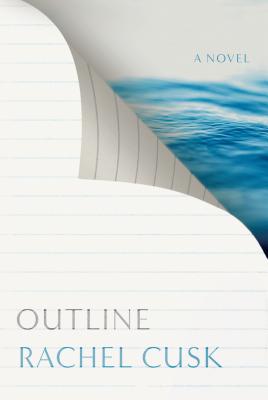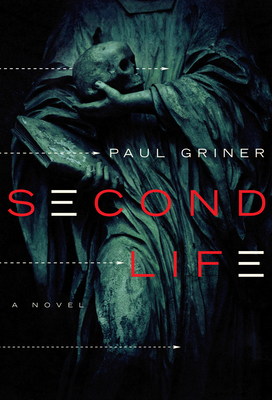A “rich, sometimes heartbreaking” (Dennis Lehane) novel of F. Scott Fitzgerald’s last years in Hollywood
In 1937, F. Scott Fitzgerald was a troubled, uncertain man whose literary success was long over. In poor health, with his wife consigned to a mental asylum and his finances in ruins, he struggled to make a new start as a screenwriter in Hollywood. By December 1940, he would be dead of a heart attack.
Those last three years of Fitzgerald’s life, often obscured by the legend of his earlier Jazz Age glamour, are the focus of Stewart O’Nan’s gorgeously and gracefully written novel. With flashbacks to key moments from Fitzgerald’s past, the story follows him as he arrives on the MGM lot, falls in love with brassy gossip columnist Sheilah Graham, begins work on The Last Tycoon, and tries to maintain a semblance of family life with the absent Zelda and daughter, Scottie.
Fitzgerald’s orbit of literary fame and the Golden Age of Hollywood is brought vividly to life through the novel’s romantic cast of characters, from Dorothy Parker and Ernest Hemingway to Humphrey Bogart. A sympathetic and deeply personal portrait of a flawed man who never gave up in the end, even as his every wish and hope seemed thwarted, West of Sunset confirms O’Nan as “possibly our best working novelist” (Salon).
A luminous, powerful novel that establishes Rachel Cusk as one of the finest writers in the English language
A man and a woman are seated next to each other on a plane. They get to talking—about their destination, their careers, their families. Grievances are aired, family tragedies discussed, marriages and divorces analyzed. An intimacy is established as two strangers contrast their own fictions about their lives.
A man and a woman are seated next to each other on a plane. They get to talking—about their destination, their careers, their families. Grievances are aired, family tragedies discussed, marriages and divorces analyzed. An intimacy is established as two strangers contrast their own fictions about their lives.
Rachel Cusk’s Outline is a novel in ten conversations. Spare and stark, it follows a novelist teaching a course in creative writing during one oppressively hot summer in Athens. She leads her students in storytelling exercises. She meets other visiting writers for dinner and discourse. She goes swimming in the Ionian Sea with her neighbor from the plane. The people she encounters speak volubly about themselves: their fantasies, anxieties, pet theories, regrets, and longings. And through these disclosures, a portrait of the narrator is drawn by contrast, a portrait of a woman learning to face a great loss.
Outline takes a hard look at the things that are hardest to speak about. It brilliantly captures conversations, investigates people’s motivations for storytelling, and questions their ability to ever do so honestly or unselfishly. In doing so it bares the deepest impulses behind the craft of fiction writing. This is Rachel Cusk’s finest work yet, and one of the most startling, brilliant, original novels of recent years.
Second Life takes us into the strange world of the second life of bodies and what happens to the physical vessel after one dies. Elena Kelly is a body broker or “corpse wrangler,” one of the best in her field. When she became too ambitious, cut too many corners and too many ethical (and legal) safeguards, she ran afoul of the law and medical profession, triggering a huge scandal in Louisville, Kentucky that quickly went national. She lost everything – and now humbled and on a strict, three-year parole, she works as coroner’s assistant in Danville.
Elena is still trying to come to grips with her regret and guilt when she is unexpectedly drawn into the search for her former best friend’s missing body. Elena knows what can happen to a body that goes ‘missing,’ how it can be salvaged and used indiscriminately for spare parts, and she endeavors to seek salvation in finding Lia and bringing her body home, as complete as possible. Her desperate search drags her back to the underworld of the dead and pits her against a new and nefarious corpse wrangler – one more talented and deadly than she ever was.
Elena is still trying to come to grips with her regret and guilt when she is unexpectedly drawn into the search for her former best friend’s missing body. Elena knows what can happen to a body that goes ‘missing,’ how it can be salvaged and used indiscriminately for spare parts, and she endeavors to seek salvation in finding Lia and bringing her body home, as complete as possible. Her desperate search drags her back to the underworld of the dead and pits her against a new and nefarious corpse wrangler – one more talented and deadly than she ever was.
Second Life pulls back the curtain on those who exist on the edge of the medical profession, the ones who remove skin and tissue and bones from the dead, for use by surgeons, medical students practicing technique, cosmetic surgeons, medical equipment companies and labs running medical experiments–anyone in need of muscle and ligament and bones. It philosophically explores our obligation to protect the dead and thrillingly examines what happens when we –literally– leave the land of the living.



No comments:
Post a Comment